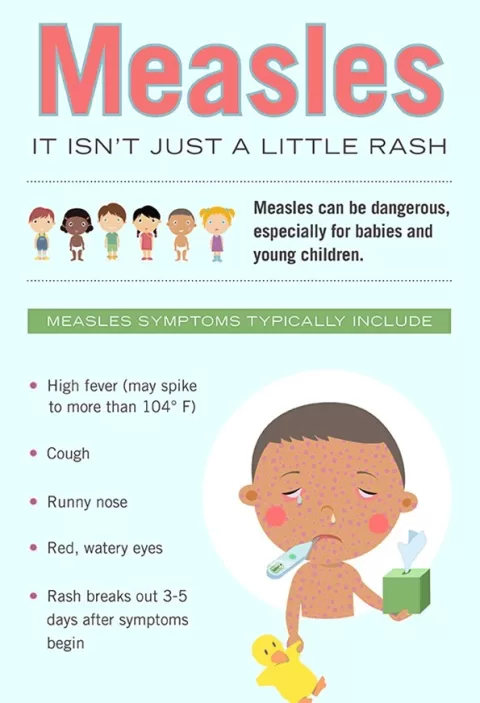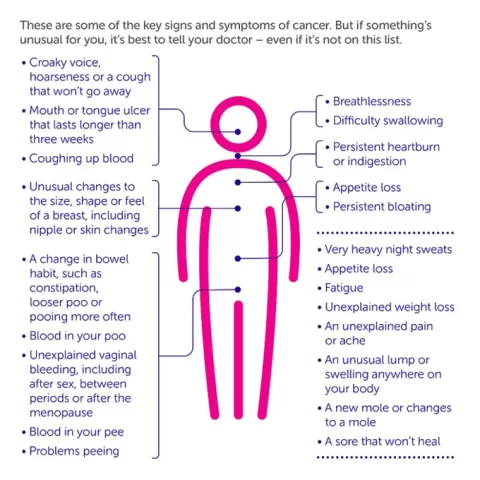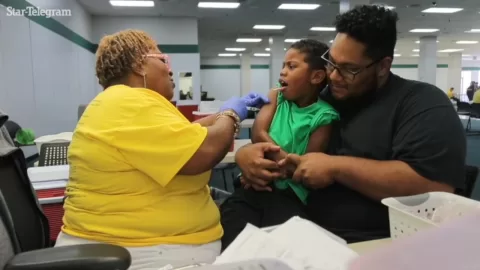Rheumatoid Arthritis and COVID-19 present unique challenges for those affected by this chronic inflammatory condition. Individuals with rheumatoid arthritis (RA) face a heightened risk for infections, notably COVID-19, particularly when their immune systems are compromised due to disease activity or the nature of their treatment, often involving immunosuppressant medications. The COVID-19 pandemic has shed light on the potential complications for RA patients, not only in terms of contracting the virus but also in facing severe manifestations of the disease. As the healthcare community continues to unravel the complexities surrounding COVID-19 vaccinations for rheumatoid arthritis patients, staying informed is crucial. Regular consultations with healthcare providers can help manage these risks and improve outcomes for those navigating the intricacies of RA and infections during this unprecedented time.
The intersection of rheumatoid arthritis (RA) and coronavirus disease emphasizes the need for increased awareness and careful management of health risks. Individuals managing RA are particularly vulnerable to viral infections, including the coronavirus, especially given the role of immunosuppressive therapies in their treatment regimen. Diseases such as COVID can lead to significant complications in this demographic, raising concerns about both immediate and long-term health outcomes. Evaluating the impact of vaccinations and preventive measures is essential for protecting this population. As the landscape of infectious diseases continues to evolve, understanding the relationship between arthritis conditions and their response to viruses becomes more critical than ever.
Understanding the Increased Risk of COVID-19 in Rheumatoid Arthritis Patients
Individuals living with rheumatoid arthritis (RA) face a significantly elevated risk of contracting infections, including COVID-19. This increased vulnerability is primarily due to the nature of RA itself, as it involves chronic inflammation that weakens the immune response. During RA flare-ups, the immune system is even more compromised, leading to an even heightened risk of severe symptoms if exposed to the COVID virus. Moreover, the use of certain immunosuppressant medications, which are commonly prescribed for RA, further increases this risk by dampening the body’s natural ability to fight off infections.
Research indicates that patients with RA not only have a higher likelihood of contracting COVID-19, but they also face worse outcomes if they become infected. A 2019 study highlighted that individuals with RA, particularly those overwhelmed by active disease, are more susceptible to urgent medical interventions compared to people with other forms of arthritis. Consequently, it is crucial for RA patients to monitor their health closely and maintain regular communication with their healthcare providers, especially during the ongoing pandemic.
The Impact of COVID-19 Vaccination on RA Patients
The COVID-19 vaccination is essential for individuals with rheumatoid arthritis, particularly for those on immunosuppressive therapy. Studies have shown that vaccination significantly reduces the risks associated with severe infections, hospitalization, and complications arising from COVID-19 in RA patients. Vaccination not only helps to prevent COVID-19 but can also aid in mitigating the effects of the virus on a compromised immune system, allowing patients to maintain better overall health during these challenging times.
It’s worth noting that while an initial reluctance to receive the vaccine due to concerns over its effectiveness in immunocompromised individuals was prevalent, recent findings have demonstrated that vaccinated RA patients experience fewer severe outcomes from COVID-19. Keeping vaccinations current is vital for those dealing with RA, as it protects them from the most severe complexities of COVID-19 infection, thus promoting healthier long-term outcomes.
Managing Comorbid Conditions in RA and COVID-19
Comorbid conditions such as diabetes, cardiovascular diseases, and chronic lung issues can significantly complicate the management of COVID-19 in patients with rheumatoid arthritis. These conditions may exacerbate the immune suppression caused by RA treatments, leading to more severe complications once an infection occurs. Therefore, comprehensive management of both RA and any comorbid conditions is essential in reducing the overall risk during the pandemic.
Healthcare providers often emphasize the importance of maintaining a holistic approach to health for RA patients with comorbidities. Regular screenings, lifestyle modifications, and medication adjustments may be necessary to prevent severe consequences if exposed to COVID-19. In this context, educating RA patients about their health and potential interactions with COVID-19 is crucial for better health outcomes.
The Role of Corticosteroids in RA Management During COVID-19
Corticosteroids are commonly prescribed to manage inflammation in rheumatoid arthritis patients; however, they can also increase susceptibility to infections, including COVID-19. While these medications are critical in controlling RA symptoms, they suppress the immune system, making it harder for the body to fight viral infections. Understanding the delicate balance between treating RA effectively and reducing the risk of COVID-19 complications necessitates careful supervision from healthcare providers.
Subsequent research has also shown mixed outcomes regarding the use of corticosteroids in COVID-19 patients, with some studies indicating that specific corticosteroids may reduce disease severity. It’s crucial for RA patients to discuss with their rheumatologist how to effectively manage their RA while remaining vigilant about the potential risks associated with COVID-19.
Recognizing and Managing Long COVID in RA Patients
Long COVID presents unique challenges for individuals with rheumatoid arthritis, as the lingering effects of COVID-19 can be exacerbated by the pre-existing inflammation and immune dysregulation associated with RA. Patients may experience a range of prolonged symptoms such as fatigue, joint pain, cognitive difficulties, and respiratory issues post-infection, complicating their already challenging health situations. Addressing these chronic symptoms requires a tailored approach that considers both RA management and the new realities of long COVID.
As the research into long COVID continues to evolve, it is essential for RA patients to remain informed about the potential risks and treatment options available for managing persistent symptoms. Collaboration with healthcare teams familiar with both RA and post-viral syndromes can help optimize recovery and improve quality of life for those affected.
The Connection Between Reactive Arthritis and COVID-19
Recent studies have suggested a link between COVID-19 and the onset of reactive arthritis, highlighting the need for vigilance in monitoring joint symptoms following a COVID-19 infection. Reactive arthritis can present with symptoms such as joint swelling and inflammation shortly after recovery from COVID, adding another layer of complexity for individuals already dealing with rheumatoid arthritis. Understanding this connection can help patients and providers alike to identify early symptoms and seek timely interventions.
For RA patients who develop reactive arthritis after COVID-19, tailored treatment strategies may be necessary to manage both conditions effectively. Traditional RA treatments may need to be adjusted, and close communication with healthcare providers is crucial for managing any new or worsening joint symptoms post-COVID.
Emergency Protocols for RA Patients Exhibiting COVID-19 Symptoms
If patients with RA start exhibiting symptoms consistent with COVID-19, it’s imperative to follow established protocols to ensure safety and proper care. Initial steps should include contacting a healthcare provider for guidance; telemedicine visits can often provide necessary assessments without exposure risks. It is essential not to rush to the hospital unless severe symptoms, like difficulty breathing, present themselves.
RA patients should be educated on recognizing early signs of COVID-19 and the importance of self-isolation while awaiting test results. Adhering to healthcare recommendations can prevent complications and ensure that patients receive the appropriate care while managing their RA effectively.
The Importance of Ongoing COVID-19 Research in RA Populations
The evolving landscape of COVID-19 requires constant research, particularly in understanding its effects on vulnerable populations such as those with rheumatoid arthritis. Ongoing studies are essential in providing insights into how RA treatments intersect with COVID-19 outcomes and the ways to optimize care for affected patients. This continuous research effort is vital in forming best practices and enhanced treatment protocols within this demographic.
Monitoring data on COVID-19 complications among RA patients can inform both treatment adjustments and public health strategies. This ongoing research is imperative to improve health outcomes and ensure the safety of RA patients as new variants and challenges emerge.
Preventative Measures and Health Maintenance for RA Patients During COVID-19
For individuals with rheumatoid arthritis, implementing preventative measures is crucial to enhance health security during the COVID-19 pandemic. This includes staying updated with vaccinations, wearing masks in public spaces, avoiding crowded areas, and maintaining good hygiene practices. These protective actions can significantly reduce the risk of exposure and complications associated with COVID-19.
In addition, RA patients should focus on overall health maintenance through nutrition, exercise, and stress management to support their immune system. By prioritizing health and wellness, RA patients can reduce the likelihood of severe outcomes should they contract COVID-19.
Frequently Asked Questions
What is the COVID-19 risk for individuals with Rheumatoid Arthritis (RA)?
Individuals with Rheumatoid Arthritis (RA) are at a heightened risk for COVID-19 due to their compromised immune systems, especially during RA flare-ups. This increased vulnerability is linked to the use of immunosuppressant medications, which can lower the body’s ability to fight infections. Staying informed about COVID-19 and maintaining regular medical care are crucial for managing risks.
How does COVID-19 vaccination benefit people with Rheumatoid Arthritis?
COVID-19 vaccination is highly recommended for individuals with Rheumatoid Arthritis (RA) as it significantly reduces the risk of severe illness and complications from COVID-19. Vaccines help bolster the immune response, which is particularly vital for those on immunosuppressant medications. Keeping vaccination status current is essential for RA patients to protect against severe outcomes.
What are the COVID-19 complications for individuals with Rheumatoid Arthritis?
People with Rheumatoid Arthritis (RA) may face severe COVID-19 complications due to a weakened immune system, particularly if RA is poorly controlled or during flare-ups. Comorbidities such as heart disease or diabetes can further exacerbate these risks. Understanding these factors helps RA patients take proactive steps in preventing severe complications.
Are immunosuppressant medications safe for RA patients during the COVID-19 pandemic?
Immunosuppressant medications are commonly used by Rheumatoid Arthritis (RA) patients but can increase the risk of COVID-19 infections. Patients should discuss their medication plans with healthcare providers to assess risks and benefits, as managing RA while minimizing COVID-19 vulnerability is critical.
Can Rheumatoid Arthritis lead to Long COVID symptoms after a COVID-19 infection?
Yes, individuals with Rheumatoid Arthritis (RA) are potentially at greater risk of experiencing Long COVID symptoms after a COVID-19 infection. Chronic conditions and immune system alterations may lead to prolonged symptoms, including fatigue and respiratory issues. Ongoing medical evaluation is recommended for affected individuals.
Is there a connection between COVID-19 and reactive arthritis in patients with RA?
Some studies suggest that COVID-19 infection can trigger reactive arthritis, characterized by joint inflammation that may occur after the infection resolution. Individuals with Rheumatoid Arthritis (RA) should monitor any new joint symptoms post-COVID-19 and consult healthcare professionals for appropriate management.
What steps should RA patients take if they develop COVID-19 symptoms?
If an RA patient develops COVID-19 symptoms, they should contact their healthcare provider right away for guidance. Self-isolation and following treatment recommendations are critical. Serious symptoms, such as difficulty breathing, require immediate medical attention.
How do corticosteroids prescribed for RA affect COVID-19 risk?
Corticosteroids, often used to treat Rheumatoid Arthritis (RA), can suppress the immune system, potentially increasing COVID-19 susceptibility. While early studies indicated a risk for severe outcomes, some corticosteroids may also help mitigate the severity of COVID-19 in specific cases. RA patients should consult their doctors about their use during the pandemic.
What is the prognosis for RA patients with COVID-19?
The prognosis for individuals with Rheumatoid Arthritis (RA) who contract COVID-19 can vary based on factors such as comorbidities and the stability of RA treatments. Vaccination, maintaining good health practices, and regular medical check-ins are essential to improving outcomes during the pandemic.
| Key Points |
|---|
| People with rheumatoid arthritis (RA) are at increased risk for COVID-19 infections, especially during flare-ups and when on immunosuppressant medications. |
| COVID-19 symptoms (fever, cough, fatigue) are similar in RA patients as in the general population. |
| Individuals with RA who are unvaccinated face higher hospitalization and mortality rates from COVID-19 compared to those without RA. |
| Certain RA treatments can influence COVID-19 risk; rituximab increases hospitalization/death risk while JAK inhibitors raise hospitalization risk. |
| Comorbidities like heart disease and diabetes can further complicate COVID-19 outcomes for people with RA. |
| Corticosteroids used for RA may increase susceptibility to COVID-19 but can also reduce severity in some cases. |
| Long COVID may impact those with RA more severely due to chronic health challenges and altered immunity. |
| If experiencing COVID symptoms, contact a healthcare provider instead of going to a hospital immediately. |
| Vaccination is highly recommended for RA patients to reduce the severity of COVID-19. |
| Preventive measures like vaccination, masks, and health maintenance are essential for individuals with RA against COVID-19. |
Summary
Rheumatoid Arthritis and COVID-19 present a significant challenge, especially for individuals with compromised immune systems. Those with rheumatoid arthritis are at a higher risk for COVID-19 infections and complications, particularly during flare-ups or when taking immunosuppressive medications. Vaccination plays a crucial role in reducing severe outcomes. Therefore, individuals with RA must stay vigilant, follow healthcare advice, and take preventive measures to safeguard their health against COVID-19.
The content provided on this blog (e.g., symptom descriptions, health tips, or general advice) is for informational purposes only and is not a substitute for professional medical advice, diagnosis, or treatment. Always seek the guidance of your physician or other qualified healthcare provider with any questions you may have regarding a medical condition. Never disregard professional medical advice or delay seeking it because of something you have read on this website. If you believe you may have a medical emergency, call your doctor or emergency services immediately. Reliance on any information provided by this blog is solely at your own risk.








